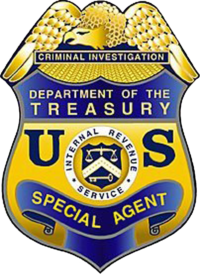Originally published on Forbes.com Oct 6th, 2012
Being one of those people who is passing from adolescence to old age without pausing for adulthood, the concept of armed tax accountants cannot but fascinate me. There are a host of reasons why it would not be a good idea for me to work for the IRS, both from my viewpoint and that of the Service. The one I like to use the most is that being just a bit over 37 and a half (hardly more than two decades), I could not qualify to start on one of the gun toting jobs. Apparently the folks that have those jobs may not be taking their privilege seriously enough, if this release is to be believed:
Firearms Training For IRS Criminal Investigation Division Needs Improvement
WASHINGTON – The Internal Revenue Service’s Criminal Investigation (CI) Division needs to ensure that its special agents are taking and passing required firearms training, according to a new report from the Treasury Inspector General for Tax Administration.
CI investigates potential criminal violations of the Internal Revenue Code and related financial crimes. Like law enforcement officers of other Federal agencies, CI special agents must meet firearms training and qualification standards each fiscal year. Special agents must pass tests, including firing a handgun, entering a building with a firearm, and firing a weapon while wearing a bulletproof vest.
TIGTA reviewed whether CI has effective internal controls to ensure that special agents are adhering to procedures regarding the required training and qualifications in the use of firearms. This included evaluating the potential impact on CI’s program if special agents fail to qualify.
TIGTA found that CI’s firearms training and qualification requirements generally met or exceeded those of other Federal law enforcement agencies. However, TIGTA found that some CI special agents did not meet all firearms training and qualification requirements. CI Field office management did not always take consistent and appropriate actions when a special agent failed to meet the requirements because the guidance was vague, TIGTA found. In addition, CI has no national-level review of firearms training records to ensure that all special agents meet the qualification requirements.
TIGTA also found that firearm-discharge incidents were not always properly reported and that remedial training was not always required after accidental discharges were caused by special agent negligence. Lastly, auditors found that procedures for securing a firearm after a discharge were not adequate.
“It is imperative that Criminal Investigation ensure that all its special agents are well trained,” said J. Russell George, Treasury Inspector General for Tax Administration. “Special agents not properly trained in the use of firearms could endanger the public, as well as their fellow special agents, and expose the IRS to potential litigation over injuries or damages.”
TIGTA recommended that the Chief, CI, clarify firearm-qualification requirements and non-training-related discharge procedures. TIGTA also recommended that CI either: 1) enforce the Internal Revenue Manual requirement that special agents who do not meet training requirements surrender their firearm, or 2) modify the Internal Revenue Manual to reflect revised consequences of not meeting training requirements. In addition, TIGTA recommended the establishment of a process for CI Headquarters to monitor and periodically review special agent firearms training and qualification records.
IRS management agreed with TIGTA’s recommendations, and plans to take corrective actions.
—————
You can follow me on twitter @peterreillycpa.































































































